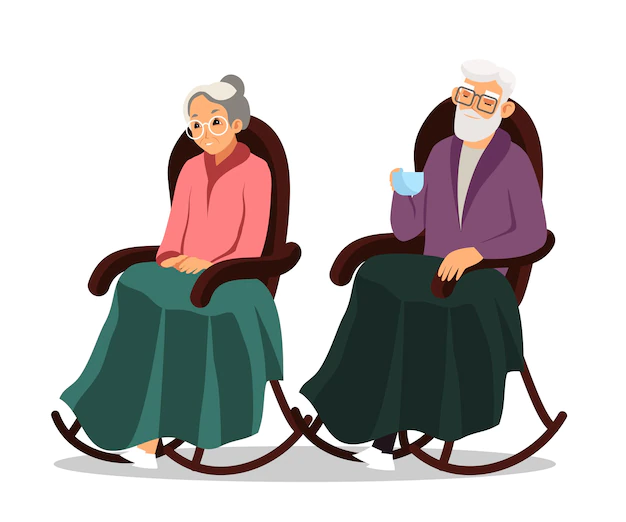Loneliness is a problem that causes memory impairment in the elderly, not just a state of mind. Their negative effects become apparent as an individual ages, causing psychological and physiological problems such as high blood pressure and high blood sugar levels (which can lead to diabetes), as well as weight gain and insomnia, and most significantly affecting memory and impairment.
Loneliness is also thought to increase men’s risk of high blood pressure and coronary artery disease by approximately 50% in women.
While social integration is becoming increasingly important for the mental and physical health of older people, married sons and daughters are preoccupied with their own lives and neglect their parents. Older people who live alone or in a difficult situation are at risk of losing their memory. This exposes the elderly to issues with cognitive balance, spatial recognition, and language comprehension, not to mention memory loss caused by the brain’s weakening and decline in its ability to store and retrieve memories.
Social isolation has been linked to changes in brain structure and cognition – the process of acquiring knowledge – in a study conducted by a group of professors and psychiatrists titled: Associations of Social Isolation and Loneliness With Later Dementia. Furthermore, social isolation raises the risk of dementia in the elderly.
Many countries are implementing institutions for older people such as nursing homes that provide quality health care with group dining as well as activities such as handicrafts or gardening to help prevent the risk of memory impairment in the elderly. Being around other people has also been shown to alleviate loneliness while lowering the risk of future Alzheimer’s disease.

Loneliness causes memory impairment in the elderly for a variety of reasons, including:
First, loneliness can cause stress, which can lead to concentration issues. According to a study conducted by the University of Toronto, loneliness can have a negative impact on memory impairment in the elderly. The study discovered that older people who felt lonely were more likely to struggle to focus on and complete tasks. The study also discovered that loneliness in older adults can lead to cognitive decline. Dr. Sandra Bond Chapman, the study’s lead author, stated that the findings suggested that loneliness should be considered a risk factor for cognitive decline.
Second, loneliness can lead to social withdrawal and a reduction in stimulating activities. They may have retired and no longer have social interaction with their employers, or their wives or friends may have died, leaving them feeling isolated. They may have severe diseases that make it difficult for them to move around, making it difficult for them to participate in the activities they enjoy. Loneliness, for whatever reason, can lead to society’s retirement, exacerbating the problem.
Third, loneliness causes depression; in many cases, older persons do not have the social cooperation they need and lack association with others. When they are lonely, they begin to withdraw from previously enjoyed activities. This can worsen their depression and make them feel more isolated. If you have an elderly person who appears to be withdrawing and isolating himself, it is supposed to communicate with him/ her and try to communicate with him/ her on a regular basis, even if he/ she refuses. Let him/her know you care about him/ her and want to assist him during this hard time in his life.
Fourth: Loneliness increases the risk of death in the elderly. Loneliness has recently been linked to an increased risk of suicide and cardiovascular disease, as well as a negative impact on quality of life. According to foreign doctor reports, the proportion of deaths among the elderly who are socially isolated is twice that of those who live with their parents and loved ones and are not socially isolated. Loneliness is now thought to be a higher risk factor for death from obesity or sitting without work, based on these findings.
Researchers believe that loneliness causes memory impairment in the elderly because lonely people are less likely to engage in activities that stimulate their brains, or because loneliness causes stress and anxiety, which can destroy brain cells and cause a constant decline in neuronal activity.

Loneliness is a serious problem that can lead to a significant decline in physical health as well as memory impairment in the elderly. There are numerous ways to integrate the only elderly into society so that they can enjoy their remaining years with purpose and enjoyment.
One of the most important steps psychologists advise to share in overcoming memory impairment in the elderly by connecting them with volunteer opportunities in their community. This can include going to schools to read to children, assisting in the creation and management of traditional food restaurants, or working in public community parks. Clubs and social activities with other elderly people and various segments of society are another way to integrate elderly people living alone into society. Joining the Elderly Choir, going on group outings, or participating in weekly club and association activities are some examples. By staying active and engaged with others, older people can avoid loneliness and live a fulfilling life in their community.

